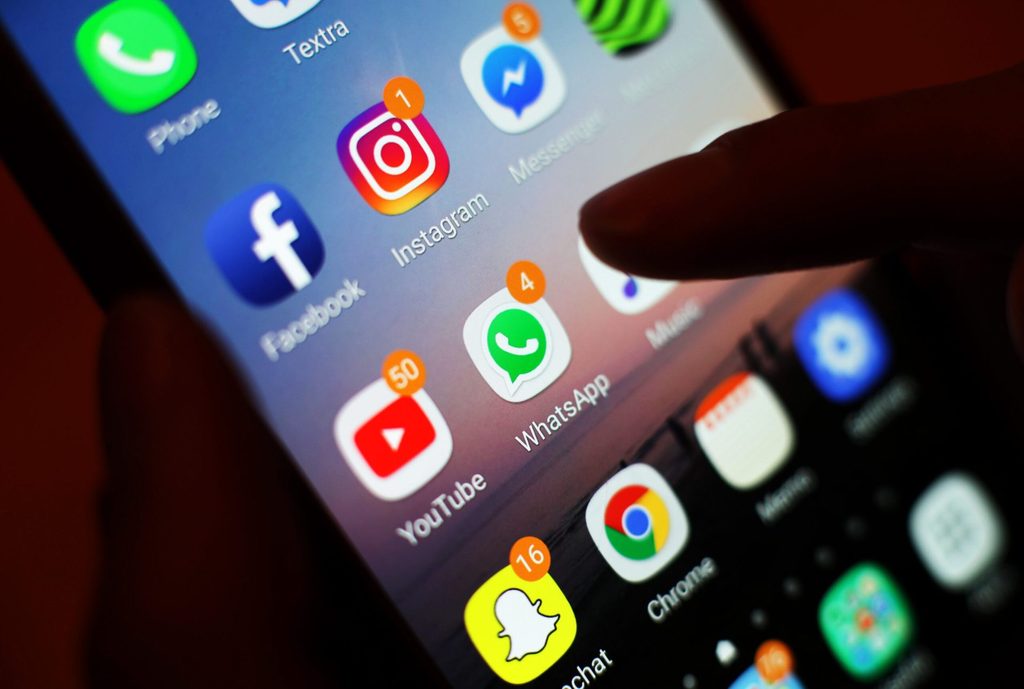From today, the 19 largest internet platforms and search engines operating in the European Union must comply with stricter European rules – contained in the Digital Services Act (DSA).
The DSA was brought in at the EU level to better protect people from online abuse, such as disinformation and to row back against obscure algorithms on users' social media timelines.
The stricter rules apply to major internet companies like Meta (Facebook, Instagram, WhatsApp) and TikTok, but also platforms like Amazon or Google and even the Apple Store with apps – good for around 45 million users in Europe.
But how do these stricter rules impact users?
1. No algorithm for your timeline
A very visible change: people's timelines on social media such as Facebook, Instagram, Snapchat and TikTok will be able to look different. Those feeds or timelines are created based on an algorithm and artificial intelligence (AI). Posts, photos, videos or so-called reels are shown based on the profile the algorithm has compiled of you as a user, through searches or interests you have entered in the past.
From today, those timelines will not disappear, but users should at least have the option to turn off that algorithm and only see a chronological order of the users they effectively follow.
With Meta, the company behind Facebook and Instagram, people will only be shown search results based on the words they enter rather than their search history. With TikTok, people will be shown popular videos from their region rather than videos based on their past viewing habits.
The EU introduces this rule because the algorithm causes you, the user, to end up in an "echo chamber," which can lead to more extremism and polarising messages.
2. No personalised advertising for minors
One of the focal points of this legislation is to better protect minors online. For instance, people under 18 years old are no longer allowed to be shown personalised ads based on the data that internet companies collected about them.
In July, TikTok announced that children between 13 and 17 would no longer be shown ads "based on their activities on or off TikTok."
Personalised advertising aimed at adults will also be curtailed: companies will no longer be allowed to use sensitive data such as religion, political affiliation or sexual orientation to suggest advertisements.
3. Faster reporting of illegal content
The new rules should make it easier to report messages, images or comments if they violate the rules, such as speech or harassment, as well as posts that incite suicide or self-harm, disinformation or scams.
In practice, TikTok created an additional reporting option with more categories. Facebook and Instagram said that reporting something will become "more easily accessible," but they did not give further details on how this will work.
4. More transparency about moderation
Internet companies will also need to be more transparent about how they moderate their platforms. If a posts is removed, the company should inform the user who made that post exactly why it was removed. "If we decide that a video is not appropriate because it contains unverified claims about elections that are still in progress, we will let you know," said TikTok.
Google, too, will be more transparent about how it allows or removes certain content on its services such as Google Search, Google Maps and the Play Store.
5. Getting rid of fakes and counterfeits
While most of the Digital Service Act's measures focus on messaging content, the law also impacts "real-world" products. The legislation should curb the trade in counterfeit products (such as cheap handbags or shoes from expensive (luxury) brands or simply unreliable goods).
That is where online shops such as Zalando, Amazon and Alibaba come in: those companies need to better monitor that no illegal counterfeit products are for sale on their platforms. Reporting those products should also become easier.
Amazon already announced that it set up a new channel for reporting suspicious products and is "investing significantly in protecting our shop from illegal content." At Zalando, they make the case that users "only see content produced or vetted by Zalando" and that there is "almost no risk" at the company.
What's next?
Every six months, internet companies must report on their internal operations, which includes understanding how posts are moderated and how artificial intelligence is used, among other things.
"If companies fail to comply, the European Commission can impose a fine of up to 6% of a company's annual global turnover. This quickly amounts to millions and even billions of euros," Belgian MEP Tom Vandenkendelaere (DC&V) told VRT. "For serious violations, a tech company can be temporarily banned from operating in the EU."
From next year in February, the rules will also apply to "smaller" companies like bol.com or booking.com. "If problems arise with them, this has to be followed up by the EU Member States themselves. So by then, every country must have a digital service coordinator," he said.
The law has taken years of negotiations, but the big challenge is only starting now: monitoring and enforcing it all, Vandenkendelaere underlined.

